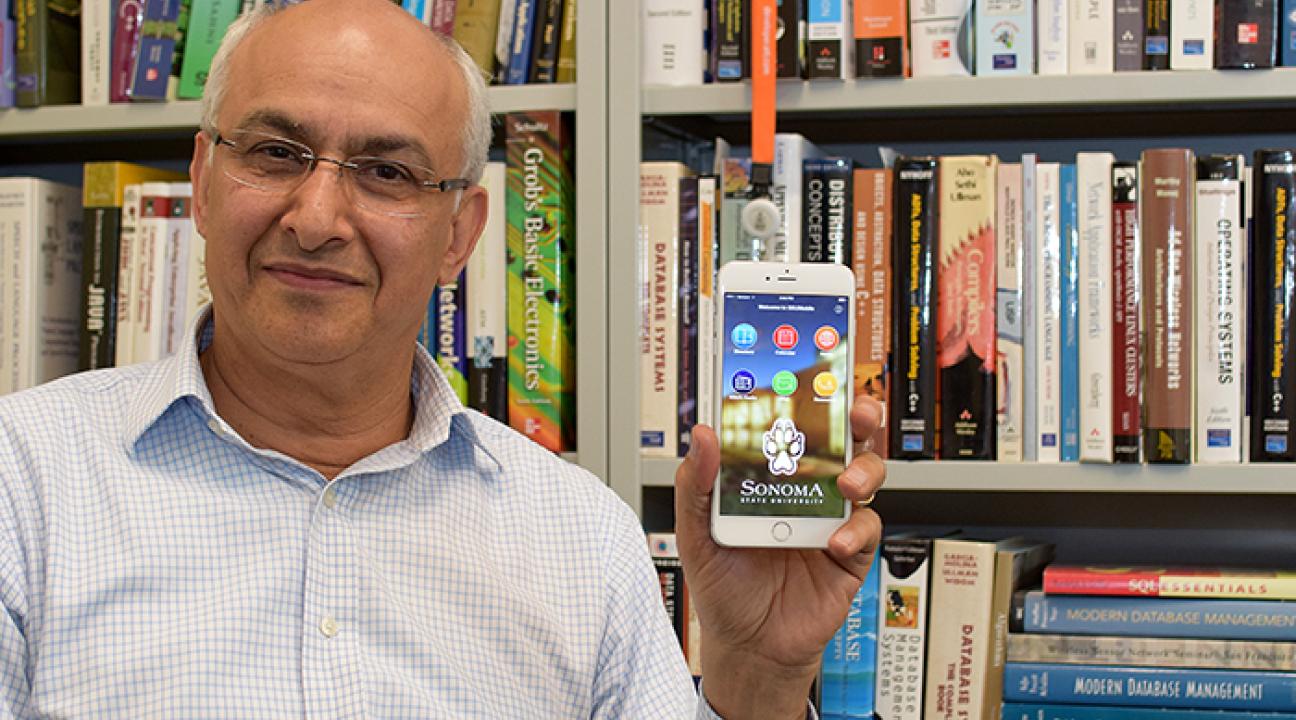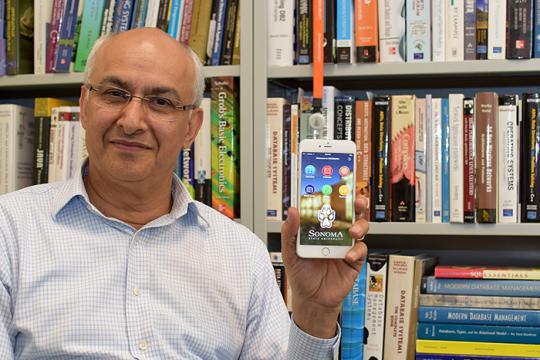New Updated iOS SSU App
Sonoma State University has updated its SSU Mobile iPhone app with new features and a fresh, modern look.
While not as in depth as other university apps, SSU's app is unique in that it was created entirely by students, with almost no cost to the university. "It's helpful, it's useful and it's different than a Web page," says Ali Kooshesh, chair of SSU's computer science department. "The features are designed to provide information easily."
Those features include a directory of faculty and staff, who can be called simply by tapping the phone number on the screen, right in the app. Another feature is the news feed from Sonoma State's News Center, placing the most recent articles at the top of the list.
Perhaps most useful feature for those new to campus uses GPS to show the user's location on campus superimposed on a campus map. There is also a user-friendly calendar of campus events and a link to listen to SSU's student-run radio station, KSUN.
Work originally started on the app in 2010, when Apple's hot new product was the iPhone 4. It was developed primarily by Jeff Neong, a student in Kooshesh's mobile app development class, and released in 2011. The current version, developed by computer science student Eric Amorde, was released this year at the beginning of February.
"I thought it was cool that we have an app and that it was made entirely by students," says Amorde, who also has made an app for SSU's Dining Services. "When I got experience writing an iPad app for dining services, I knew our campus had an [official] app and I really wanted to get involved and contribute."
One of the issues with iOS development is that the platform moves so fast, "The app that you have needs to be updated frequently," says Kooshesh, noting that the first version was made for iOS 5, while the new version is optimized for iOS 7. In the mean time, Apple has already moved on to iOS 8.
Kooshesh hopes a student team can continue to work on updates to SSU's app, but it's not easy to compete with companies offering top dollar with similar work. "We absolutely do have the talent that is needed to do this, but we are not alone in being interested in that talent," he says.
Amorde, who graduates this spring, says he received internship credit for working on the SSU app, and suggests that students interested on continuing the app's development get in touch with Dr. Kooshesh. There's a project in the works to make registration easier through the SSU Mobile app, but would require students to get on board to continue development.
Sonoma State has about 40 students enrolled in the two sections of its mobile app development class, which is taught by Kooshesh. He says the number of computer science majors at the school has tripled in the past three years. "This is really a reflection of the fact that the job market for computer science graduates is very good," says Kooshesh.
The class only teaches iOS app development at this time, and the university has a license to sell in the Apple App Store, which costs $100 per year. The license is the only cost associated with developing the app, as students who work on it are not paid but can receive internship credit.
Unlike most free apps, SSU Mobile does not collect user data. "Absolutely not," says Kooshesh when asked about tracking users. "We do not know who you are and don't ever really try to know who you are." With a laugh, he adds, "It's hard enough to just give you what you need."
There are no plans at this time to develop an app for other mobile platforms, says Kooshesh. "We would need to make another app from scratch," says Kooshesh.
SSU's mobile app can be downloaded at https://itunes.apple.com/us/app/sonoma-state-mobile/id417108359?mt=8.



